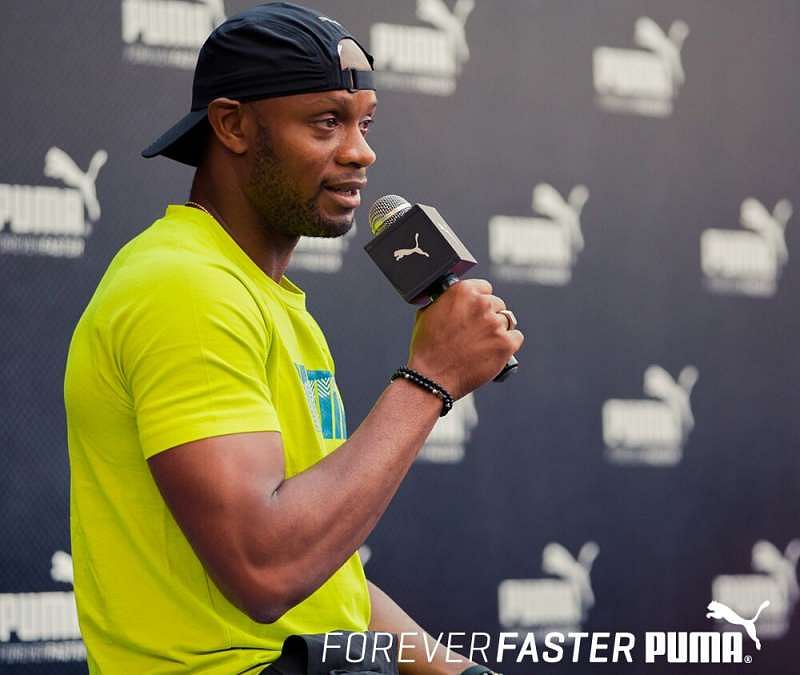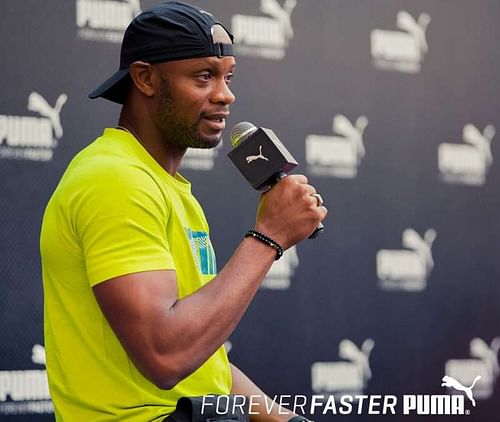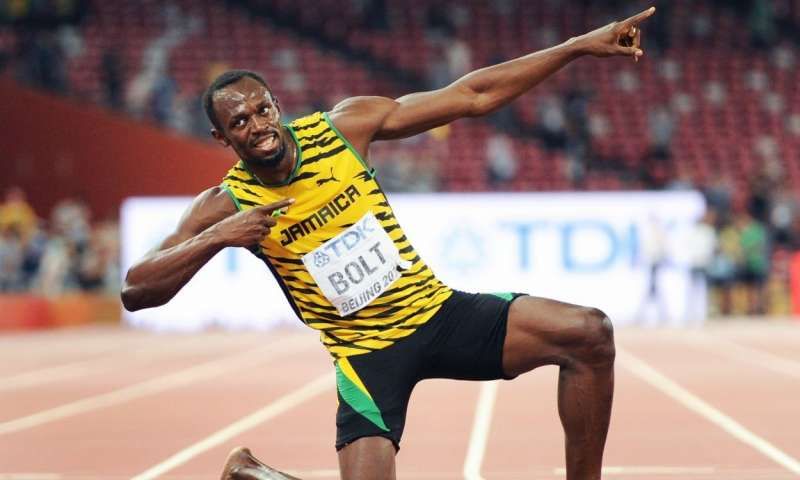
Asafa Powell: "I am in India to join PUMA in their mission to inspire and engage India to get up and running"

Being a two-time Olympic champion and a former 100-meter world record holder can be a big deal for a person, but not for PUMA athlete Asafa Powell. The Jamaican, who turns 34 on November 23rd, is a surprisingly passive and calm person, given his huge built and ferocious speed on the track. The Sub-10 King came to India as a part of the Puma IGNITE DELHI campaign, which aimed at making running popular in the national capital.
Powell spoke exclusively to Sportskeeda about his career, Airtel Delhi Half Marathon, his association with PUMA and Usain Bolt. Here are the excerpts:
Q. What brings you to India and why did you decide to promote an event completely unrelated to you?
I was invited by Puma India to join them on their mission to inspire and engage India to get out up and running. So even though this is a marathon and I am a sprinter it’s all still related to running, moving and staying healthy.
Q. Coming from a fairly religious family, how did sport become such a big part of your childhood? Are you a religious man yourself?
Yes, both of my parents were pastors but they both were very active (and still are, though to a lesser extent). We were six boys and would be running all over the pace. My eldest brother ran track & field and went on to participate in the 2000 Olympics. Also, schools in Jamaica encourage sports, be it running, football, swimming or netball. To answer the next question, I am a religious man and it is a significant part of my life.
Q. What do you make of young Indian athletes and what is the biggest thing they lack as compared to some of the American, European and African athletes?
I think that you have a lot of youth who seem eager to be active and from what I saw yesterday, they enjoy running. I have only been here two days so I am no expert, but from what I have heard in speeches and discussions, it seems as what is lacking is a youth programme that encourages and develops young athletes when it comes to athletics.
Q. In a country like Jamaica, where there are so many other problems, how did a sport like running overtake any other and create so many heroes?
Like I said, high schools in our country give a lot of importance to running and there are really strong programmes, such as Champs (track and field) and Manning Cup. These programmes help children to develop young athletes and turn them into professionals.
Q. Which of Usain Bolt’s records is more likely to be broken – 100m in 9.58s or 200m in 19.19s?
It will be very difficult to break these two records. I feel breaking the 9.58 seconds could be more likely to be broken, if at all it happens. 19.19 seconds in 200m is just ridiculous.

Q. While everyone goes gaga over Usain Bolt, there is a certain Shelly-Ann Fraser-Pryce whose achievements are slightly undervalued as compared to the former. Is it the same in Jamaica like all other parts of the world?
Shelly-Ann Fraser-Pryce is very much respected and valued at home. Like you mentioned, she has pretty much achieved everything except the world records. However, I think it is the media that has not given her the dues she deserves, like they have given to Usain (Bolt). She is a phenomenal athlete and loved a lot in Jamaica.
Q. What is the optimum temperature for a sprinter to perform at his best? Are timings likely to be faster in countries with cooler climates or these things do not matter?
All sprinters are different and it would be wrong for me to talk on the behalf of all athletes. Obviously, I am grateful that I come from a country like Jamaica where you can train in warm temperatures year round. I would hate to have train in sub-zero temperatures and in snow. As far as timings go, Jamaica has three of the five fastest men in the world. So I would say cooler climates do not generate fastest results.
Q. What do you make of Andre De Grasse? Is he the top contender for gold in the next World Championship and Tokyo 2020?
I think Andre is a great guy and good runner. If he continues performing as he had in the Olympics, I am sure he will be a contender at World Championships. As far as the 2020 Tokyo Olympics are concerned, I cannot speak to that as I do not know what his plans or he will be running four years from now.
Q. Describe your association with PUMA and how the brand, over the years, has worked towards promoting sport all around the world?
I have been running in PUMA almost my entire time as a professional athlete as they have sponsored the Jamaican team for a really long time now. So when I signed with them last year it was so natural because they were already family to me. It is a great fit not just as a brand but what they stand for in promotion of sport, health and camaraderie across the globe.
Q. Does sprinting require athletes to stay more injury-free as compared to other sports? Which are some of the body parts where a sprinter cannot afford injuries?
Sprint, like any other sport, requires you to remain healthy in order to perform at your best. Like any other sport if you are injured, you risk your career. For a sprinter, your legs are what you use to run. So I would say hamstring, Achilles, feet and groin.
Q. How much of a role does natural talent play in sprinting? Is it something like, “you have it or you don’t”? Could you give an example of an athlete who has worked his way up in 100 meters as compared to a Bolt, who has tremendous natural talent?
Yes, it is a definitely “you have it or you do not” sport. It is really hard to try and “learn” sprinting as it is an innate talent has to be there, following which it can be sculpted or moulded.
Q. What does the future hold for Asafa Powell?
The future holds a tremendous amount of possibilities and I cannot wait to meet it head on.